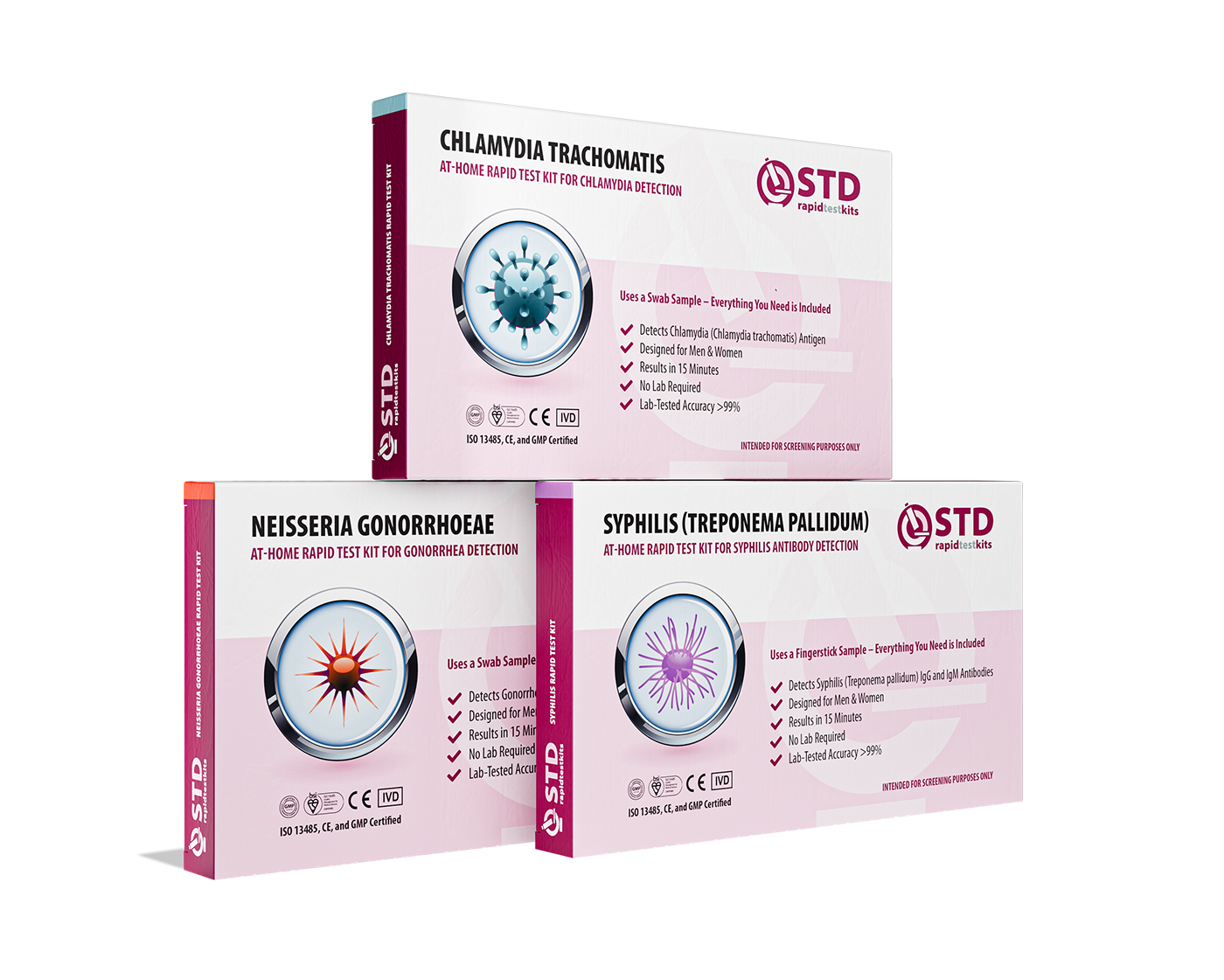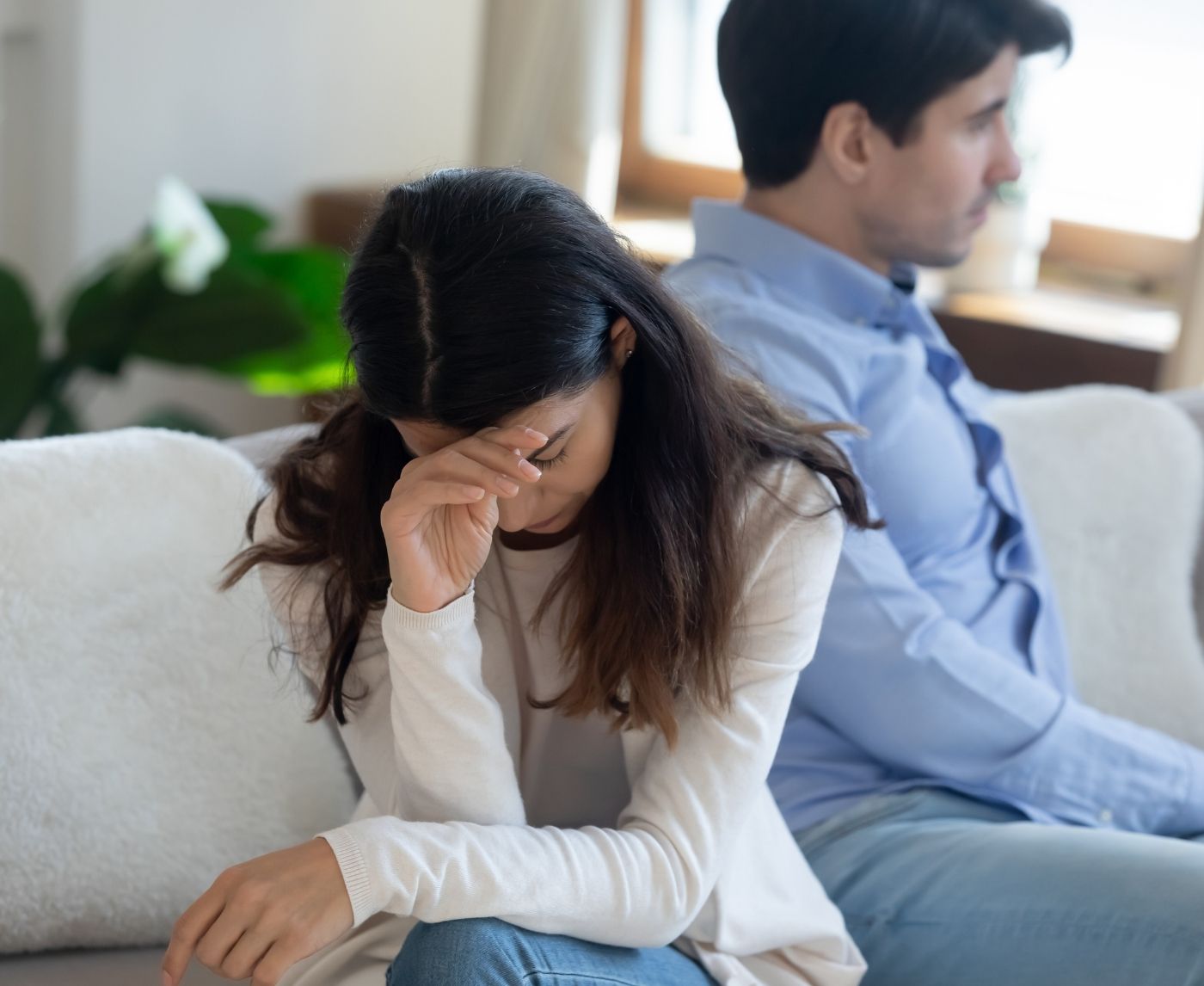That Red, Goopy Eye Might Not Be Pink Eye, It Could Be an STD
The Diagnosis Isn’t the End, It’s the Beginning
So, you got tested. You did the brave, responsible thing. Maybe it was routine. Maybe it was after a new hookup, a weird symptom, or just a gut feeling. But now you’re staring at a screen, or a doctor, confirming the one thing you were afraid of: you have an STD. And then came the second gut punch. You told your partner, or your crush, or your situationship, and they disappeared. Or they yelled. Or they said, “Thanks for your honesty,” and walked away anyway.
This moment can feel like everything you feared is now true: that you're gross, unlovable, doomed to be alone. But here’s the truth you need to sit with first: This diagnosis does not define your worth. And the way someone reacts to your truth says more about them than it ever will about you.
STD Rejection Is Real, But So Is Resilience
If someone dumps you after you disclose an STD, especially if you did it with care and courage, it hurts, like deep-in-your-gut, why-did-I-ever-trust-anyone-again kind of hurt. People ghost. People shame. People run. Not because you did something wrong, but because they weren’t ready to handle real intimacy, real responsibility, or real vulnerability.
Marina, 29, found out she had herpes after a routine test. She told the guy she'd been seeing for six months. He blocked her by the end of the day.
"I felt like a disease, not a person," she said. "But a month later, I realized, he wasn’t my person. My herpes just helped me figure that out faster."
Breakups after disclosure are more about fear than fact. And fear fades, but the way you show up for yourself in this moment? That shapes everything.

Why People React the Way They Do
Your partner’s reaction to your diagnosis isn’t a referendum on your desirability. It’s a mirror of their own beliefs, knowledge gaps, and emotional readiness.
Some people have never heard anything about STDs that wasn’t a punchline or a warning label. They think “STD” means “unclean,” “untrustworthy,” “reckless.” That’s what stigma does, it replaces science with shame.
Others react out of fear, not of you, but of getting sick, of not knowing what comes next, of what their friends will say. It’s primal. It’s uninformed. And it’s not your job to carry their panic. You’re allowed to be disappointed in their response. But don’t let their ignorance become your inner voice.
The Fear Behind Disclosure (And Why It’s So Heavy)
Why is telling someone you have an STD so scary?
Because it’s not just about the body, it’s about identity. We live in a culture that still associates sexual health with morality, especially for women and queer folks. Disclosing an STD means risking rejection not just of your status, but of your sexual past, your honesty, your “cleanliness,” your future. And when someone leaves after that moment? It feels like proof that your fears were right.
But here’s what we never say loud enough: It takes more courage to tell the truth than it does to hide. You told someone about your health, that’s radical vulnerability. That’s strength. And the people who can’t meet you there? They were never going to love you well anyway.
Check Your STD Status in Minutes
Test at Home with Remedium7-in-1 STD Test Kit

 For Men & Women
For Men & Women Results in Minutes
Results in Minutes No Lab Needed
No Lab Needed Private & Discreet
Private & DiscreetOrder Now $129.00 $343.00
For all 7 tests
Not All Love Is Lost: What Happens When Someone Stays
Not every disclosure ends in heartbreak. Some people stay. Some people say “thank you” and mean it. Some go get tested. Some cry with you. Some say, “That’s okay, we’ll figure it out.”
According to a 2023 ASHA survey, over 70% of people said they’d be willing to date someone with herpes, chlamydia, or another common STD, especially if that person was honest and proactive. Relationships that survive disclosure tend to become stronger. Why? Because you’ve already had a hard conversation. You’ve already practiced mutual trust. You’ve faced fear together. If that’s not intimacy, what is?
What to Do If They Ghost You After Disclosure
Let’s say you opened up, you told the truth, and then... silence.
The “read” receipt with no reply. The slow fade. The full-on block. Whatever the flavor, ghosting after STD disclosure cuts deep, not just because someone disappeared, but because they vanished at your most vulnerable moment. It’s natural to replay the conversation in your head. Did I say too much? Should I have waited longer? Was I too clinical? Too emotional?
The truth is, there’s no perfect script. And ghosting says more about someone’s fear of intimacy than your diagnosis.
You don’t need closure from someone who couldn’t give you conversation. Grieve the loss, but don’t grieve yourself. You were honest. You were brave. That’s the kind of person someone out there is actually looking for.
How to Rebuild Confidence After STD Rejection
Rejection after disclosure can wreck your sense of self. It can make you hesitant to date, to trust, to even imagine someone wanting you again. But that’s not because of the STD, it’s because shame thrives in silence. Here’s what rebuilding can look like:
- Talk about it: Whether it’s therapy, support groups, or forums like Reddit’s r/STD, telling your story helps dissolve the shame.
- Educate yourself: The more you know about your condition, the less power it has over your identity.
- Reconnect with your sexuality: You are still allowed to be sexy, desirable, and intimate, on your terms.
You’re not damaged. You’re not disgusting. You’re just someone with a manageable health condition, and a whole heart that still wants connection. That’s not just okay. It’s powerful.

How to Talk to Future Partners (Without Panic)
Telling someone you have an STD doesn’t have to be a monologue soaked in fear. It can be clear, calm, and even empowering.
Try something like:
“Before we get more intimate, I want to be honest about my sexual health. I have an STD, which I manage with medication. I’m happy to answer any questions. Your comfort matters too.”
That’s not an apology. That’s leadership. That’s sexual integrity. And the right person? They’ll see it. Remember: you don’t owe disclosure to everyone you flirt with. But when it becomes emotionally or physically intimate, that’s when the conversation earns its place.
Dating Again Doesn’t Mean Starting Over
It’s easy to think you’re back at square one, back to swiping with a secret, wondering when to bring it up, bracing for the worst. But you’re not the same person you were before that diagnosis or that heartbreak.
You’re wiser now. Braver. More aware of what real connection takes. Many people with STDs go on to have joyful, spicy, long-term relationships. Some date others with the same condition. Some disclose early and often. Some wait until things get serious.
There’s no one “right” way, just your way. Dating after diagnosis isn’t about hiding your truth. It’s about leading with it when it matters most.
STD Status Doesn’t Cancel Love
Love isn’t reserved for the “clean.” That word, clean, is part of the problem. You are not dirty. You are not dangerous. You’re not a risk that someone takes.
You’re a human being with a body and a story, and those things include skin, sex, and sometimes, STDs. If someone can't handle your reality, they were never ready for your love in the first place. Real love, the kind that lasts, isn’t scared off by a blood test. It listens. It learns. It adapts. And it stays.
Check Your STD Status in Minutes
Test at Home with Remedium3-in-1 STD Test Kit

 For Men & Women
For Men & Women Results in Minutes
Results in Minutes No Lab Needed
No Lab Needed Private & Discreet
Private & DiscreetOrder Now $69.00 $147.00
For all 3 tests
Common Misconceptions About STD Disclosure
Disclosure can feel like walking into a minefield, but most of the fear comes from myths, not facts. Let’s clear a few up:
- Myth: No one will want to date you if you have an STD.
Reality: Millions of people are living full, healthy, loving lives with herpes, chlamydia, HPV, and more. The right people care about trust, not test results. - Myth: Disclosing always leads to rejection.
Reality: Rejection happens, but acceptance happens more often than you think, especially with compassion and education. - Myth: You should wait until things get serious to disclose.
Reality: The best time is before things get physical, but there’s no one-size-fits-all answer. It’s about respect, not a rulebook.
Herpes isn’t a punchline. Chlamydia isn’t a moral failing. HPV isn’t the end of your dating life. These are just things that happen to people who are alive, sexual, and human.
FAQs
1. What if someone dumps me after I tell them I have an STD?
It hurts, but it’s not about your worth. Their reaction reflects their fear, not your value.
2. How do I tell a new partner about my STD status?
Be honest, calm, and confident. Focus on facts, your management plan, and mutual respect.
3. Should I tell someone I’m dating even if we don’t have sex?
If there’s no chance of sexual activity, it’s not always necessary, but every situation is different.
4. Can someone still love me if I have an STD?
Yes. Plenty of people do. Love isn’t about a lab report, it’s about connection and truth.
5. How soon should I disclose my status?
Before sex, when you feel emotionally safe, and when the relationship is headed toward intimacy.
6. Is herpes really that common?
Yes, over half the adult population carries HSV-1 or HSV-2. Most don’t even know they have it.
7. What’s the best way to protect a partner from transmission?
Medication, condoms, communication, and regular testing significantly reduce the risk.
8. Do people with STDs date each other?
Absolutely. Many connect through shared experiences, and those relationships can thrive.
9. Will having an STD affect my mental health?
It can, but support, therapy, and community can help you heal emotionally as well as physically.
10. Should I get tested again before disclosing?
If it’s been a while or you’re unsure of the timeline, yes. Consider a Complete STD Home Test Kit Package to check your current status.
You Are Not a Diagnosis
Here’s what you need to remember: You’re still you. Funny, weird, sexy, lovable, stubborn you. A test result doesn’t rewrite your future. It just reshapes how you tell your story. And the people worth keeping? They’ll want to hear it. Don’t let a diagnosis define your worth. Get tested from home and take control of your story.
Sources
1. Conversation Tips for Disclosing STIs – CDC
2. How to Talk With Your Partner About STD Testing – Planned Parenthood
3. How to Share Your STI/STD Status – Healthline
4. How To Tell Your Partner You Have An STD – Pasadena UC










